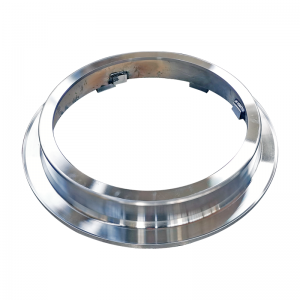дек. . 04, 2024 18:12 Back to list
die casting aluminium
Die Casting Aluminium A Comprehensive Overview
Die casting is a highly efficient and versatile manufacturing process that allows for the production of complex aluminum components with exceptional dimensional accuracy and surface finish. This technique has gained immense popularity across various industries, including automotive, aerospace, consumer electronics, and industrial machinery. With its numerous advantages, die casting aluminum has become a preferred method for creating lightweight and durable parts.
What is Die Casting?
Die casting is a manufacturing process that involves forcing molten metal, typically aluminum, into a mold cavity under high pressure. The molds, known as dies, are precisely machined to form the desired shape of the final product. The process begins with the melting of aluminum alloy, which is then injected into the die at high velocity. Once the metal cools and solidifies, the mold is opened, and the finished part is ejected. This process can produce thousands of identical parts with remarkable accuracy, making it an ideal choice for high-volume production runs.
Advantages of Die Casting Aluminum
1. High Dimensional Accuracy One of the primary benefits of die casting aluminum is the exceptional dimensional stability it offers. Parts produced through this method can achieve tolerances as tight as ±0.1 mm, which is crucial for applications requiring precise fit and function.
2. Surface Finish Die casting aluminum components exhibit excellent surface finish, often requiring little to no additional machining. The smooth surfaces not only enhance aesthetic appeal but also reduce the need for subsequent finishing processes.
3. Lightweight and Strong Aluminum is known for its favorable strength-to-weight ratio. Die casting aluminum parts are not only lightweight but also possess high strength, making them suitable for applications where weight reduction is critical, such as in the automotive and aerospace sectors.
die casting aluminium

4. Complex Geometries The die casting process can produce intricate shapes and designs that would be challenging or impossible to achieve with traditional machining methods. This capability allows engineers to create innovative designs that meet functional requirements while optimizing material use.
5. Cost Efficiency in Mass Production Although the initial tooling costs for die casting may be higher compared to other methods, the long-term cost-effectiveness of mass production offsets this. Once the die is created, the process can yield thousands of parts rapidly, minimizing the per-unit cost.
Applications of Die Casting Aluminum
Die casting aluminum is widely used in a variety of applications across different sectors. In the automotive industry, components such as engine blocks, transmission housings, and structural parts are commonly produced using this method. The aerospace industry benefits from lightweight aluminum structures, including brackets, frames, and engine parts, where weight savings contribute to fuel efficiency.
Consumer electronics is another area where die casting aluminum shines. Products such as laptop casings, smartphone housings, and various electronic enclosures benefit from the durability and aesthetic qualities of aluminum die-cast components. Additionally, the industrial sector utilizes die casting for producing machinery parts, tools, and housings that require strength and resilience.
Conclusion
In conclusion, die casting aluminum is an essential manufacturing process that offers numerous advantages, including high dimensional accuracy, superior surface finish, lightweight properties, and cost efficiency in mass production. Its versatility and ability to create complex geometries make it a preferred choice in various industries, from automotive to consumer electronics. As technology continues to advance, die casting aluminum is expected to play an even more significant role in producing innovative, high-quality components that meet the demands of modern engineering challenges. With ongoing research and development, die casting processes are likely to become more efficient and sustainable, further solidifying their importance in the manufacturing landscape.
-
Durable Cast Steel Concrete Pipe Mold Bottom Rings & Base Trays
NewsAug.23,2025
-
Centrifugally Cast Iron Water Main Pipe for Reliable Mains
NewsAug.22,2025
-
Durable Centrifugally Cast Iron Water Main Pipe
NewsAug.11,2025
-
Centrifugally Cast Iron Water Main Pipes for Reliability
NewsAug.10,2025
-
High-Quality Centrifugally Cast Iron Water Main Pipes
NewsAug.09,2025
-
Durable Cast Iron Water Main Pipe & Drainage Solutions
NewsAug.08,2025


